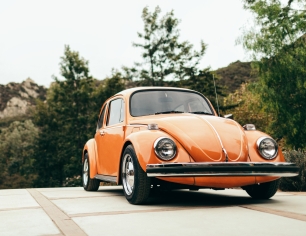Are classic cars a good investment?
Classic cars fluctuate in value, but they can appreciate over time rather than depreciate like a modern car does. Classic car appreciation depends on multiple factors, including the purchase price, the condition of the vehicle, the model's rarity, your restoration and maintenance costs, and how much you can sell it for. It's also important to consider the pros and cons of owning a classic car to see if it's worth it to you.
Explore Progressive Answers' auto editorial guidelines to find out why you can trust the car insurance information you find here.
What you should know before investing in classic cars
Classic cars can be a risky investment. Even if you purchase a model that significantly increases in value after you buy it, you may still put more money into it with repairs and maintenance costs. Additionally, collector trends are unpredictable, so you can't bank on a specific model dramatically increasing in value.
That said, classic cars do often increase in value and are one of the better performing collectibles out there. In fact, our friends at Hagerty found that collector cars had an average annualized return of 4.6% from 2018-2023.
If you're really interested in collecting classic cars as an investment, then you should look for a model that is:
- In good or better condition: A classic car that is well-maintained and needs no repair work will hold its value better. Plus, you won't have to sink more money into restoring it, giving you a better chance of selling it for a profit down the road.
- Consistently increasing in value: Hagerty, which specializes in insurance for classic cars, has a slew of valuation tools you can use to research and track the estimated values of thousands of classic cars. Learn more about finding out how much a classic car is worth.
- Rare or unique in some way: Cars that were part of a limited production run are generally worth more, along with models that were the first in a new design or generation.
Pro tip:
If you're investing in a classic car, then you should drive it sparingly to protect its value. A collectible may be less likely to depreciate over time if it gets less use. And insurance for a collectible or classic car that is only driven for recreation is generally more affordable and comprehensive than regular auto insurance (any car driven daily needs a standard auto insurance policy).
What are the pros and cons of investing in a classic car?
If you're buying a classic car for enjoyment and not because you want to turn a profit, it may be worth your money regardless of its future value. Determining your reasons for buying a classic car can help you decide if owning one is worth it. Which of these pros of buying a classic car are most important to you?
- A fun project: Classic cars can be fun to own and drive. And if you know your way around cars, or want to learn, restoring and maintaining a classic can be a fulfilling way to spend your time. Many classics are fairly easy to work on, and you can likely find the information you need to learn online or from classic car enthusiasts.
- Nostalgia: Classic cars take you back to a different time. Whether it's the vehicle's style or the memories it elicits from days gone by, classic cars often provide a sense of nostalgia, and you'll be able to connect with other classic car owners at events.
- Value: Unlike modern-day vehicles that start depreciating as soon as you drive them home, classic cars often increase in value over time if you take good care of them.
Now, consider these cons to owning a classic car:
- Cost: Classic cars may cost more than modern vehicles, and you'll likely drive it less due to its age.
- Repairs and parts: Because they're old, classic cars may need to be inspected and repaired more often. If your classic is particularly rare, you might have difficulty finding the parts you need. If you're not prepared to maintain the vehicle yourself, you'll need to find a mechanic who can.
- Convenience: Features like navigation systems, Bluetooth hook-ups, and entertainment systems aren't available on classic cars. Classic cars also aren't as environmentally friendly as newer models. They produce higher emissions and emit more pollutants into the air.
- Safety: Compared to modern cars, classic cars lack many features that help keep you and your family safe on the road today. The U.S. government didn't set vehicle safety standards until the late 1960s. Many safety features such as airbags, electronic stability control, and the LATCH child safety seat system didn't become mandatory until the 1990s or later.
If you want to get a feel for the hobby before investing in a classic car, consider renting a classic car first. If you're ready to start collecting, read up on the process of buying a classic car so you know where to start looking for that dream car of yours.

Get a free quote for classic car insurance today
Learn more about classic car insurance policies.









